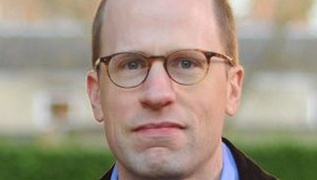Biography
Nick Bostrom is Professor in the Faculty of Philosophy at Oxford University. He is the founding Director of the Future of Humanity Institute, a multidisciplinary research center which enables a few exceptional mathematicians, philosophers, and scientists to think about global priorities and big questions for humanity.
Bostrom has a background in physics, computational neuroscience, and mathematical logic as well as philosophy. He is the author of some 200 publications, including Anthropic Bias (Routledge, 2002), Global Catastrophic Risks (ed., OUP, 2008), Human Enhancement (ed., OUP, 2009), and the academic book Superintelligence: Paths, Dangers, Strategies (OUP, 2014), which became a New York Times bestseller. He is best known for his work in five areas:
- existential risk;
- the simulation argument;
- the simulation argumentanthropics (developing the first mathematically explicit theory of observation selection effects); (iv) impacts of future technology; and (v) implications of consequentialism for global strategy.
- anthropics (developing the first mathematically explicit theory of observation selection effects)impacts of future technology; and (v) implications of consequentialism for global strategy.
- impacts of future technology; and implications of consequentialism for global strategy.
- implications of consequentialism for global strategy.
He is recipient of a Eugene R. Gannon Award (one person selected annually worldwide from the fields of philosophy, mathematics, the arts and other humanities, and the natural sciences). He has been listed on Foreign Policy's Top 100 Global Thinkers list twice; and he was included on Prospect magazine’s World Thinkers list, the youngest person in the top 15 from all fields and the highest-ranked analytic philosopher. His writings have been translated into 24 languages. There have been more than 100 translations and reprints of his works.
Back to people
